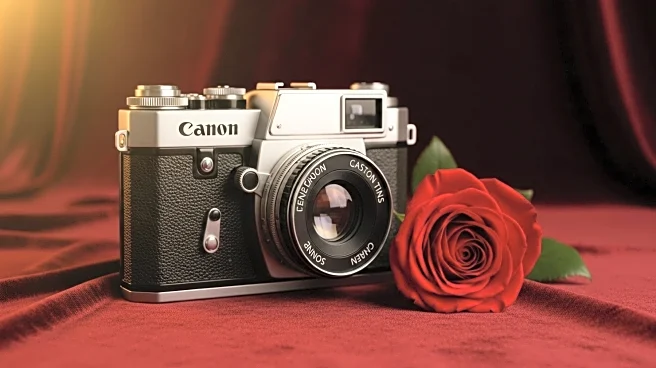What's Happening?
Claudia Cardinale, a celebrated figure in post-war Italian cinema, has died at the age of 87. Cardinale, known for her roles in films such as 'The Leopard' and 'Once Upon a Time in the West', was a symbol of glamour and talent in the film industry. Her career began after winning a beauty contest in Tunis, which led to her introduction to the movie world at the Venice film festival in 1957. Despite early challenges, including a secret pregnancy and language barriers, Cardinale rose to international fame with roles in Federico Fellini's '8 1/2' and Luchino Visconti's 'The Leopard'. Her career spanned decades, with notable appearances in Hollywood productions and European films, and she was recognized for her fiercely independent spirit.
Why It's Important?
Cardinale's passing marks the end of an era for Italian cinema, where she was a prominent figure who contributed significantly to its global recognition. Her work with renowned directors like Fellini and Visconti helped elevate Italian films on the international stage. Cardinale's career also highlights the challenges faced by women in the film industry, including personal struggles and professional obstacles. Her legacy is a testament to resilience and artistic dedication, inspiring future generations of actors and filmmakers. Her influence extended beyond cinema, impacting cultural perceptions and the representation of women in media.
What's Next?
The film industry and fans worldwide are likely to commemorate Cardinale's contributions through retrospectives and tributes. Her films may see renewed interest, offering audiences a chance to appreciate her work and the cinematic history she helped shape. The impact of her career may also prompt discussions on the evolution of female roles in cinema and the ongoing challenges faced by women in the industry. As the industry reflects on her legacy, there may be calls to honor her achievements through awards or dedications.
Beyond the Headlines
Cardinale's life and career offer insights into the cultural and social dynamics of the 20th century, particularly in the context of Italian cinema. Her defiance of traditional norms, such as her meeting with Pope Paul VI in a miniskirt, underscores her role as a trailblazer for women's independence and expression. Her story also highlights the intersection of personal and professional life, illustrating the complexities faced by public figures. Cardinale's journey from beauty contest winner to international star reflects broader themes of identity, resilience, and the transformative power of art.









